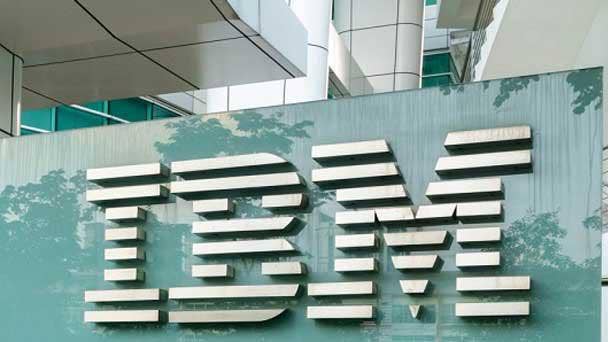5 Things To Know About Kyndryl, IBM’s New Services Business
From who will lead Kyndryl to what types of engagement the company will focus on to how the solution provider community will be impacted by its split from IBM, here are five things we know about the company so far.

A New Channel Giant Takes Shape
IBM on Monday revealed that its $19 billion managed infrastructure services business will be called Kyndryl once it’s spun out from Big Blue later this year. Kyndryl will be based in New York City, and has adopted a logo with the company’s name written in red and entirely in lowercase.
Though Kyndryl just received its name this week, the separation has been in the works for at least six months, with IBM first revealing a plan to carve out its infrastructure services business in October 2020 and then announcing top executives for the yet-to-be-named entity in January and March 2021.
As the months have progressed, a clearer picture has emerged about who will lead Kyndryl, what types of engagement the company will focus on, where its customers are located, when the spinoff is slated to close, why IBM felt the move was beneficial, and how the solution provider community will be impacted by the split. Here are five key things to know about Kyndryl months before its official launch.

5. IBM Will No Longer Be The World’s Largest Solution Provider
Spinning off Kyndryl will cause IBM Global Services to topple from No. 1 to No. 2 on the CRN Solution Provider 500, with Accenture jumping to the No. 1 slot. After the split, IBM Global Services will consist of its $8 billion cloud services consulting unit as well as its $17 billion Global Business Services unit, which provides management and strategy consulting, systems integration, and app management services.
Global Business Services will account for more than 40 percent of IBM’s revenue once the separation of Kyndryl is finalized, said David Sun, director of corporate business development for IBM Services. The Kyndryl split will change IBM from a $71 billion company with more than half of its revenue in services to one where more than half of its revenue is recurring and coming from coming software and solutions.
The new IBM will feature Red Hat as its crown jewel, allowing Big Blue to be laser focused on the $1 trillion hybrid cloud opportunity. Outside of Red Hat and its solution provider business, IBM will retain its systems businesses, its mission-critical public cloud service, and a software portfolio focused on big data, artificial intelligence, and security.

4. Kyndryl Will Build Out Financial, IT, HR Infrastructure Pre-Split
IBM is continuing to work through building out a leadership team at Kyndryl as well as getting the necessary financial, IT and HR infrastructure in place to spin it out as a standalone company, according to David Sun, director of corporate business development for IBM Services.
Sun told CRN he’s remaining with IBM as part of its Global Business Services team, and will continue to focus on mergers and acquisitions.
IBM Services has since February 2019 been overseen by Mark Foster, who in the role continues to have full operational responsibility for Global Business Services, which has been under his stewardship since September 2016. Cloud application innovation efforts within IBM’s Global Business Services division have been overseen by John Granger, the division’s chief operating officer, since January 2019.

3. Kyndryl Will Be Fifth Largest Solution Provider In The World
Kyndryl will enter the CRN Solution Provider 500 list at No. 5 behind Accenture, the remaining IBM Services practice, DXC Technology, and Tata Consulting Services when it completes its separation later this year. The company will be the world’s largest managed infrastructure services provider, and double the size of its next largest competitor, IBM CEO Arvind Krishna told investors in October.
Kyndryl will have revenue of $19 billion, a $60 billion services backlog, and 4,600 clients in 115 countries, including more than 75 percent of the Fortune 100.
This will be at least the third business IBM has excised in the past decade, following in the footsteps of Big Blue’s sale of its customer care outsourcing business to distributor Synnex for $505 million in 2013 and the sale of its PC business to Lenovo in 2014 for $2.3 billion.

2. Current IBM Execs Tapped For Kyndryl CEO, President, CMO Roles
Kyndryl already has three of its highest-ranking executives in place months before it’s stood up as an independent company. Longtime IBM veteran Martin Schroeter (pictured) was announced in January as Kyndryl’s CEO following a two-and-a-half-year stint overseeing Big Blue’s global sales, worldwide geographic operations, and client relationships.
Then in March, Kyndryl tapped Elly Keinan as its group president following a 30-year tech career that included stints as general manager of IBM North America, general manager of IBM Latin America, and chairman of IBM Japan. Keinan has since September served as a partner with Pitango Venture Capital, Israel’s leading venture capital group.
Kyndryl’s chief marketing officer will be Maria Bartolome Winans, who was most recently responsible for demand generation across the U.S., Canada, and Latin America as chief marketing officer for IBM Americas. She has also led marketing teams for IBM Watson’s business, as well as IBM’s software unit, during her 30-year career with Big Blue.

1. Infrastructure, Application Buying Cycles Have Diverged
Kyndryl will be laser-focused on client-owned infrastructure, providing everything from traditional hosting and networking services to transformation ones like modernization of mission-critical infrastructure and hybrid and multi-cloud management for the world’s largest enterprises, IBM CEO Arvind Krishna (pictured) told investors in October.
While IBM is divesting from infrastructure consulting beyond its own technologies, the company will remain all in on application modernization through its $16.63 billion Global Business Services division. IBM has in recent years seen diverging purchasing cycles for its infrastructure and application services businesses, with the selection criteria and decision-makers most-often not one in the same, he said.
IBM will likely be Kyndryl’s largest customer initially, while Kyndryl will be IBM’s largest customers at the onset of the separation, Krishna said in October. But over time, Krishna said IBM is expected to build outs its ecosystem of business partners, including other leading systems integrators that will compete with Kyndryl.